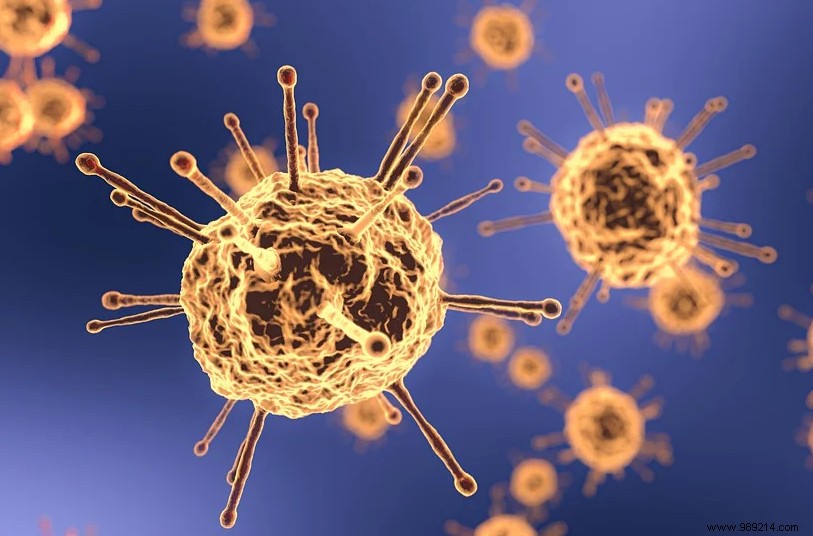A recent international study confirms the ability of SARS-CoV-2, responsible for the Covid-19 pandemic, to infect neurons. This phenomenon could explain the loss of smell, the headaches or the strokes suffered by some patients.
Although Covid-19 is at first thought to be a respiratory disease, we know that SARS-CoV-2 affects several organ systems, including the central nervous system. Headaches, loss of smell, or even cerebrovascular accidents (CVA) are indeed all neurological symptoms of Covid-19 inherent in this brain damage.
These are known, but the reasons for their development are still unknown. A recent study involving Yale University (USA), the Brain Institute (Sorbonne University/Inserm/AP-HP/CNRS) and the Pitié-Salpêtrière Hospital AP-HP suggests that these neurological disorders are linked to the fact that SARS-CoV-2 infects the neurons of some patients.
As part of this work, published in the Journal of Experimental Medicine , the researchers used three independent approaches to probe the ability of SARS-CoV-2 to infect the brain.
First, using human brain organoids (brain cells grown in the laboratory). Here, the researchers observed clear evidence of infection accompanied by metabolic changes in infected and neighboring neurons.
In a second approach, they relied on mice over-expressing the human ACE2 protein (the one present on the surface of cells used by the virus to enter and attach itself to the cell). 'organization). Again, the authors here demonstrated the neuroinvasion of SARS-CoV-2 in vivo.
Finally, the researchers also detected the presence of SARS-CoV-2 in the cortical neurons of deceased patients, as well as pathological damage associated with the infection, such as accidents ischemic vascular.
Together, these results provide evidence for the novel coronavirus's neuroinvasive capacity. "Together, these results support the brain tropism of SARS-CoV-2 and its ability to infect neurons, r summarizes Inserm in a press release. They also suggest that the neurological symptoms observed in Covid-19 could be a consequence of this direct damage to the central nervous system .

How the virus enters neurons remains to be determined . This work suggests that the ACE2 protein once again plays a key role in the ability of SARS-CoV-2 virus particles to integrate into neurons. In this sense, the researchers raise the possibility that neuronal infection can be avoided by blocking ACE2 with antibodies or by administering cerebrospinal fluid from a COVID-19 patient . However, additional studies will have to be carried out in the coming months to be sure.